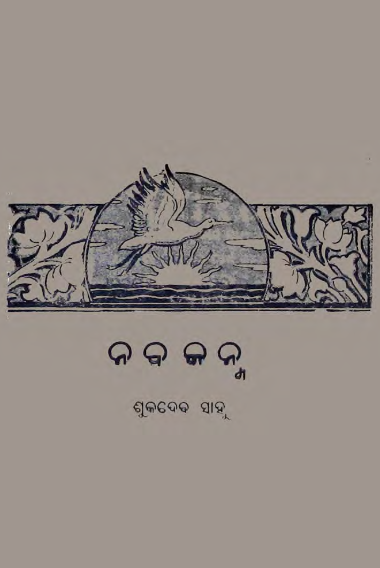Published in 1949, Nabajanma,a significant literary work by Odia author Shukadeba Sahu, has remained a poignant reflection of societal changes and the intricate weave of personal identity against the backdrop of India’s historical landscape. The title, translating to New Birth, suggests a thematic exploration of rebirth, transformation, and the search for self in a rapidly evolving society.
Nabajanma follows the life of its protagonist, who embarks on a profound journey of self-discovery amidst the social upheavals of post-independence India. The narrative unfolds against a rich tapestry of characters, each representing different facets of Odia culture and society. Sahu intricately weaves personal and social narratives, revealing how external changes catalyze internal transformations.
The protagonist’s journey is not merely physical but deeply psychological, symbolizing the universal quest for identity in an era marked by significant political and social change. As the protagonist navigates through family dynamics, societal expectations, and emerging modern values, the novel paints a vivid picture of the conflict between tradition and modernity.
One of the central themes of Nabajanma is the quest for identity amidst transformation. Sahu employs nuanced character development to illustrate the struggles faced by individuals in reconciling their heritage with the demands of a new world. The protagonist’s experiences underscore the challenges of finding one’s place in a society that is in constant flux—reflecting a broader commentary on the Indian populace grappling with its cultural roots in an age of modernization.
The notion of rebirth permeates throughout the narrative, seen through the protagonist’s evolving relationships and the shifting landscape of values. Sahu’s characters often grapple with the burden of expectations, societal norms, and their own aspirations, mirroring the existential dilemmas faced by many in the post-colonial context.
Shukadeba Sahu’s eloquent prose captures the essence of Odia culture, interweaving folklore, traditions, and contemporary issues. The author meticulously paints a portrait of the socio-economic conditions of the time, providing readers with insights into the lives of common people, their struggles, and resilience. The melting pot of tradition and modernity becomes a vivid backdrop for the individual journeys of the characters, making Nabajanma not just a story of one person’s transformation, but a reflection of a community in transition.
Books Info
| Books name | Nabajanma / ନବଜନ୍ମ |
| Author | Shukadeba Sahu |
| No Of pages | 238 |
| Publisher | Sri Bijayakumara Mallick |
| Publication | 1949 |
| Printed At | Kali process Workers |
| Distributor | NA |

